
Is the diameter of a watch an entirely objective piece of data? Not really. What was deemed ‘big’ in 2000 seems to have become the new ‘medium’ 20 years on. What’s more, technical tricks of the watchmaking trade can make dials look bigger than they actually are*
A Question of Readability
Essentially, a Panerai needs to be readable in poor light and in deep water. Panerai and other firms seeking to fulfil technical requirements of this kind have not really varied their diameters much at all over the past 20 years.
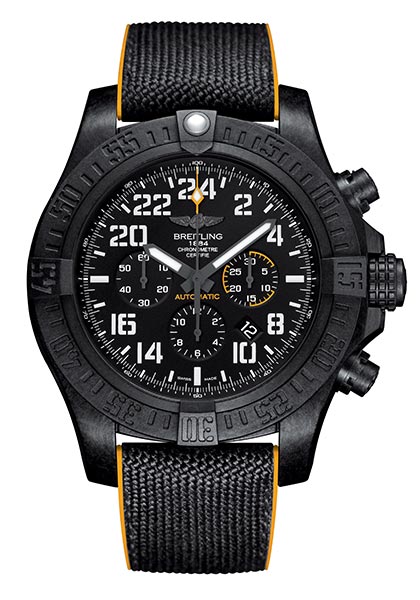
Avenger Hurricane© Breitling
The same is true of watches dedicated to professional aviation. Up until 2017, Breitling was the embodiment of a brand devoted to this segment, its slogan leaving no doubt as to its intentions: “Instruments for Professionals”. This being so, the diameters of its Avenger, Super Avenger, and Chronomat (which celebrated its 30th anniversary in 2004), as well as those of other models, were designed to ensure the dial was readable – even at Mach 1. Cases measuring a generous 48mm were virtually the norm. The Navitimer, which had its golden jubilee in 2002, came with an outrageous (for then) 41mm diameter right from its launch in 1952. That may be a common format nowadays, but at the time it was like wearing a clock on your wrist rather than a watch. Brietling held its ground, though: a Navitimer is a professional instrument, it argued, so there could be no skimping on readability – and thus no compromise on case diameter, either.
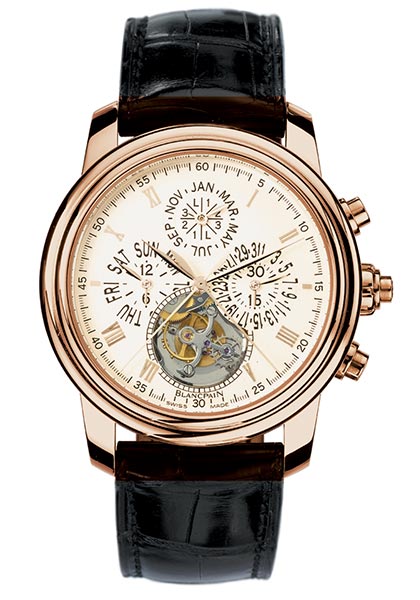
Brassus “Tourbillon Quantième Perpétuel Chronographe Flyback à Rattrapante”© Blancpain
Perpetual Calendars and Tourbillons: Complications in More Ways than One
Another point to be taken into consideration is the increasing prevalence between 2000 and 2020 of complications that require a certain amount of space. This is especially true of the tourbillon and perpetual calendar (or ‘QP’ as it is abbreviated in French), albeit for rather different reasons. A tourbillon escapement calls for a dial large enough for the collector to be able to admire it. One such example is the 42mm Blancpain Villeret Tourbillon Volant Heure Sautante Minute Rétrograde, which came out in 2018. It provides more than enough room for the tourbillon – in a timepiece that actually has just one hand.
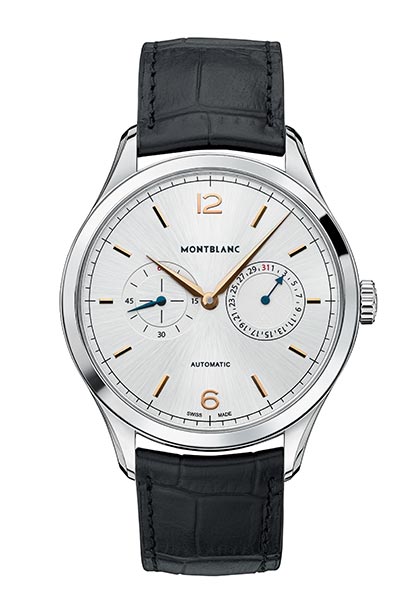
Heritage Chronometrie Collection Twincounter Date © Montblanc
Things are different when it comes to perpetual calendars. The challenge is not so much that of visual appeal but of readability. There’s not much scope these days for a watch to feature readable hours, minutes, seconds, day, date, month and leap-year indications, perhaps with a moon phase thrown in for good measure – and have a diameter of only 38mm. That said, watchmakers have gradually managed to get the minimum diameters at which they can still deliver a clear, readable perpetual calendar down to 40mm. That size has always been a firm favourite at Patek Philippe, even for a sports watch such as the Nautilus. When H. Moser & Cie. was relaunched in 2013, from the outset its QP diameter was no more than 40.8mm. And when Montblanc set out to make this noble complication more affordable, its Heritage Perpetual Calendar measured no more than 40mm.
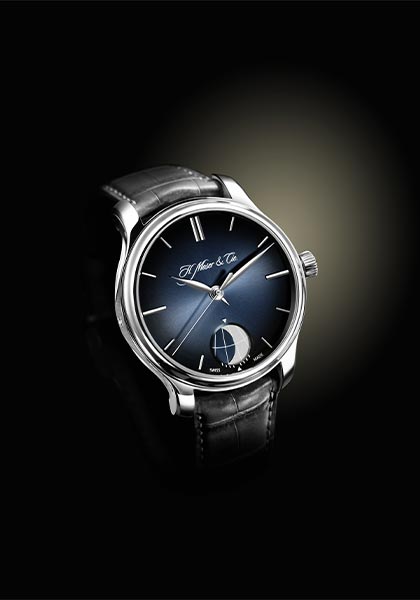
Endeavour Perpetual Moon Concept © H.Moser & Cie.
One Solution to the Diameter Problem: No more Circles
The other major variable that can result in a range of watch dimensions is quite simply shape. The rectangular format has seen an uptick between 2000 and 2020, although it remains quite a rare shape, usually the preserve of independent watchmakers. Collectors come to them seeking something off the beaten track, and the adventurous brands in question have been more than happy to oblige: MB&F with its HM2, Hautlence with its HL, Hysek’s Colosso and then the Colossal, HYT with its H3, DeWitt with its WX-1, and de Grisogono with its New Retro, plus of course the signature pieces from Urwerk and Cabestan – and that’s before we get to the ‘tonneau’ format much beloved of Richard Mille for almost 20 years now… the list goes on.
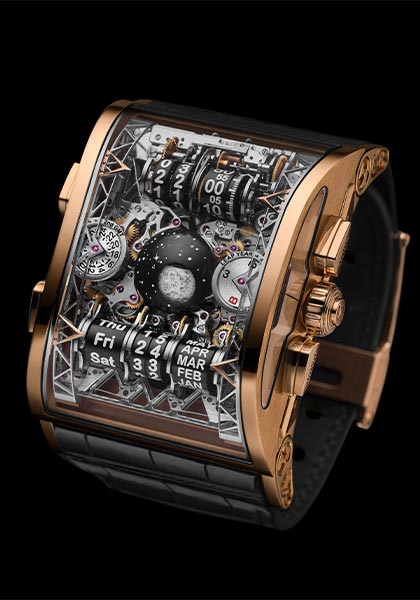
Colossal Grande Complication © Hysek
And even on circular watches, dimensions aren’t always what they seem. Some 39mm timepieces can appear to be 40mm or even 41mm in size. The simple explanation is that they don’t have a flange: the dial reaches all the way to the bezel. Take Jaquet Droz’s Grande Seconde; the very minimalist, flange-free 39mm models look much larger than they actually are.
Another piece of diameter wizardry dear to watchmakers is sunray decoration. This finish, in which lines literally radiate from the centre of the dial towards the bezel, creates an illusion of expanse. The effect is used by Zenith and Seiko in their respective Elite Classic and Presage collections.
The tiny Diameters of Ladies’ Watches
Baume & Mercier had a piece called “Petite Promesse” that measured a mere 22mm. The Hermès Faubourg has a diameter of 15.5mm, while the Mini D by Dior measures no more than 19mm. Brands were enticed by tiny formats between 2010 and 2020. European markets (and some Asian ones, notably Japan) fell for these authentic ‘jewellery watches’, reminiscent of the dainty timepieces of the turn of the century, especially those produced by jewellers such as Cartier and Chaumet in an era when checking the time was considered bad manners. Habits change – but watches of all diameters live on.
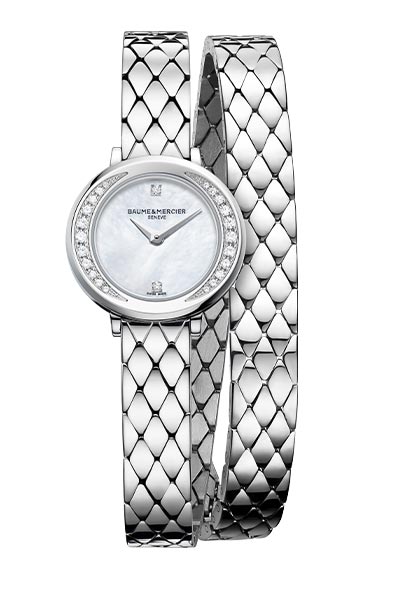
Petite Promesse Ref. 10289 © Baume & Mercier
*On the occasion of GMT Magazine and WorldTempus' 20th anniversary, we have embarked on the ambitious project of summarising the last 20 years in watchmaking in The Millennium Watch Book, a big, beautifully laid out coffee table book. This article is an extract. The Millennium Watch Book is available on www.the-watch-book.com, in French and English, with a 10% discount if you use the following code: WT2021.








































